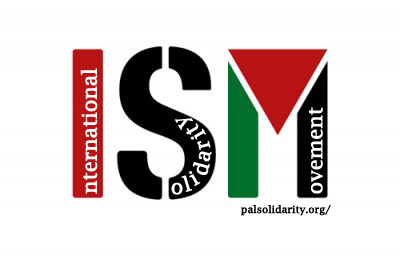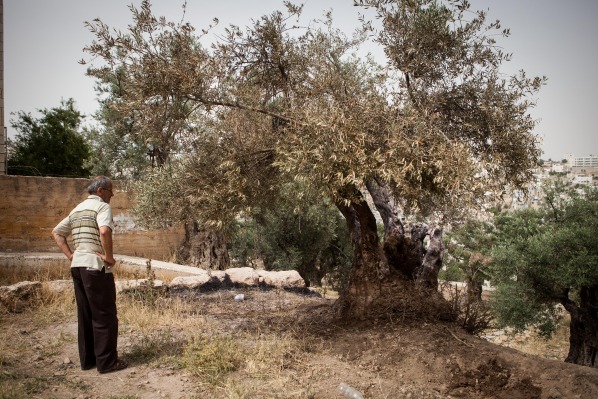Tag: Olive Trees
-
Action alert: Join ISM
16th August 2014 | International Solidarity Movement | Occupied Palestine The International Solidarity Movement (ISM) is placing a call out for volunteers to join us in the West Bank now, and for the olive harvest beginning in October. We need solidarity activists to support the Palestinian popular struggle by joining protests and demonstrations, to document and report on the crimes…
-
The Roman tree
7th June 2014 | International Solidarity Movement, Khalil team | Hebron, Occupied Palestine At approximately 1:00 pm on June 4th, a burning olive tree was located in the vicinity of Tel Rumeida, al-Khalil (Hebron). The Palestinian firefighters extinguished the fire with no assistance from the occupying Israeli military. As an occupying state, Israel is legally responsible for…
-
Settlers attack stopped by farmers in Talfeet
6 March 2014| International Solidarity Movement, Team Nablus| Talfeet, Occupied Palestine Farmers caught a settler cutting down olive trees in Talfeet, delivered him to the Israeli police and lodge a complaint toward him. This morning, at around 10:30, three farmers working on their land in Talfeet caught a settler cutting down ” title=”olive trees”>olive trees…



